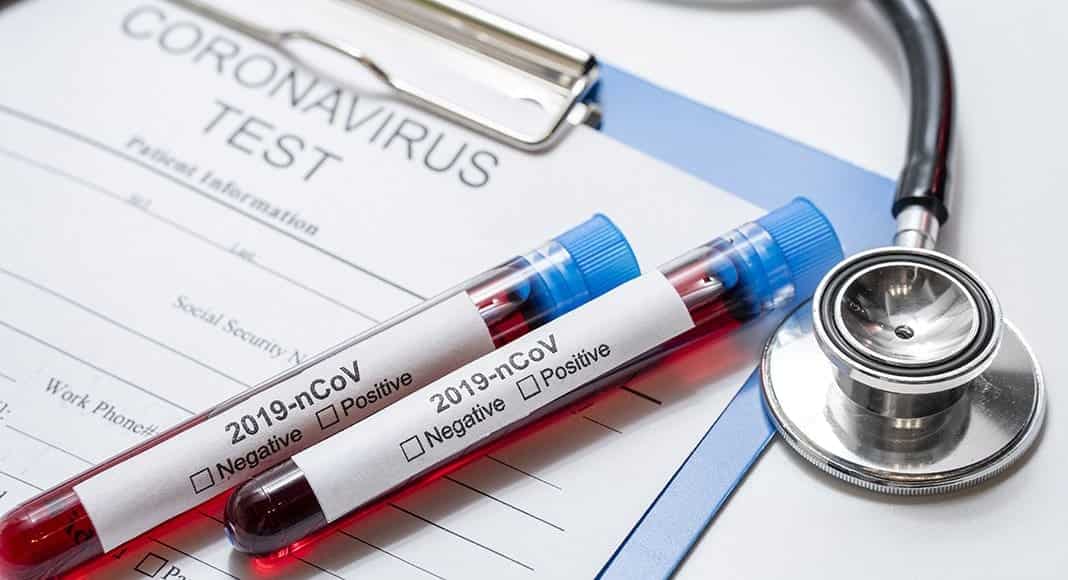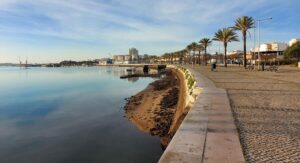With the parliamentary vote to approve a new State of Emergency due tomorrow – and 7.1 million inhabitants already in partial lockdown – tabloid Correio da Manhã has been publishing an uplifting series of ‘conversations’ with people who have had Covid-19, and come out the other side.
Today’s short interview is with Nazaré mayor Walter Chicharro – the public official currently battling against his town’s ports authority snap decision yesterday to ‘ban surfing activities of any and all kinds’ in what is Portugal’s equivalent of Mecca for ‘big wave surfers’.
Mr Chicharro’s point is that Nazaré has been publicised to the world – by both Turismo de Portugal (which at one point financed a massive ‘digital wave’ demonstration in New York’s Times Square to shout the wonders of the west coast town’s incredible monsters) and the town council itself. It seems ridiculous now for the country to shoot itself in the foot and actually BAN people from either taking part in the competitions and events that have sprung up, or from watching them live, for the sake of a virus which over 99% of people who get it seem to recover from.
50-year-old Mr Chicharro knows this first hand. He describes his symptoms to CM as “small muscular pains” which lasted “two to three days”.
During that time he took a regular ‘flu remedy’ and an anti-inflammatory. He kept up this medication for “three to four days” (he can’t remember now exactly how long it was), and went into 14-days of self-isolation.
At the first sign of the virus the mayor took a Covid test (which proved positive). Ten days later he took a further test (positive again) and after 14 days he took a third test which came up negative.
His ‘ordeal’ saw him working ‘remotely’ throughout. “I worked right through”, he explains, saying this actually helped his confinement as he remained busy and ‘psychologically’ that felt ‘good’.
What message does he have for anyone who contracts Covid-19? “Resilience, resistance and serenity”, he tells the paper. “It’s a dull moment in which the common good must prevail. This mentalisation is decisive for all (of us).”
The day before CM interviewed 29-year-old singer Miguel Cristovinho who, with colleagues from group D.A.M.A., was “totally taken by surprise” when he tested positive for the virus.
“We still don’t know who we got it”, he told the paper, “because no one in our circle of friends was infected or had any contacts who had been with people who did”.
Cristovinho went into isolation with his wife and baby son, who “was the first to run a fever”.
The little boy lost his sense of taste and smell, then it was his father’s turn to feel sick. “I had pains all over my body”, he said. Again, only in the first few days.
The singer’s wife was the last to get the virus, and now all three are virus free.
Of the pandemic, the singer admits to D.A.M.A. already having had to cancel 15 concerts.
But of the virus, it seems it came and went with no one really having a great deal to complain about.
As has already been explained in many publications, social media posts and television interviews, the method of testing for Covid-19 is not foolproof: perhaps the main concern being that it can (and does) reach its positive results by detecting the presence of viral genetic material without being able to distinguish if that material is infectious or the result of a past infection.
One reader remarked in a letter addressed to the editor recently that the technique of PCR testing “amplifies short segments of the virus” but “depending on how many times you amplify” results will change.
For example, under 20 amplifications and all tests will be negative. Over 60, all will become positive. “There is no consensus on how many amplifications are considered to give the best results”, he explained. “Some countries run 30, others 45…”
So, to CM’s Tuesday ‘survivor’, well-known comedian Fernando Rocha, 45.
In short, Mr Rocha also suffered – but only for three days.
His symptoms included a cough, pains throughout his body, loss of smell and taste and a high fever.
He told CM that he took “only paracetamol to reduce the fever”. But he had a terrible time with the PCR tests. They logged him as positive for Covid-19 for two months.
In the middle of the ordeal, he received one ‘negative test’, but that proved positive the next day, so he had to sit it out at home until he finally tested negative on two consecutive days.
What is his message to anyone who tests positive for the virus? “Don’t underestimate it. It is not the nonsense that some people say it is, although of course there are those who are making money from all this. Protect yourselves, and protect others”, he advised.
To date, 88,946 people have ‘recovered’ from Covid-19 infection in Portugal. There are currently 65,300 active infections.
Predictions given by the health minister Marta Temido last week – which helped tip the government’s hand in calling for a new State of Emergency – were that Portugal would have 444 people in ICUs by November 4. This has not transpired. At yesterday’s press conference, statistics showed there are 325 people in ICUs. It is still ‘not a good number’ – and there are hospitals in some areas described as struggling to cope – but it is not quite as bad as the population had been led to believe.




















